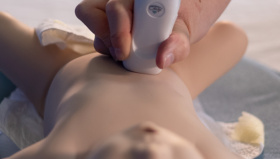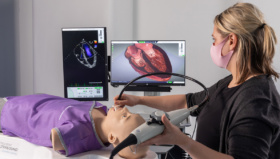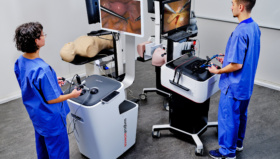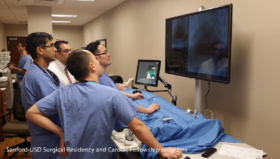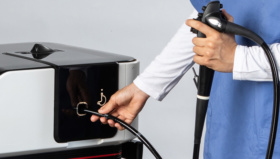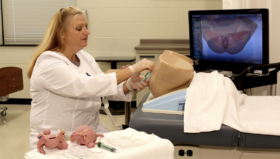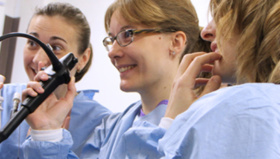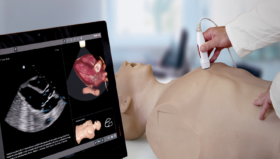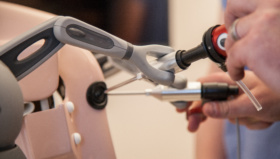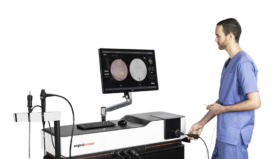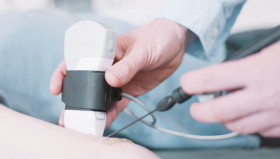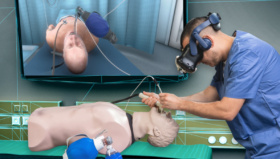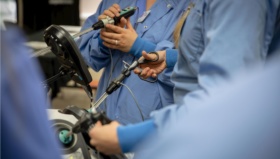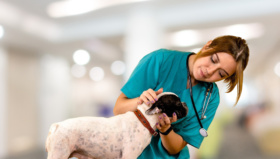Enhancing Surgical Skills with Laparoscopic Simulation at Davos GI Course
The Davos GI Course, now in its 42nd year, is one of Europe’s largest and most comprehensive hands-on surgical training programs. Certified with CME by the Swiss Surgical Society, It offers a tiered curriculum – basic, intermediate, and advanced – covering open, minimally invasive, and robotic surgery techniques.
The collaboration with Surgical Science started in 2004 (with the earliest simulators of the previous company Simbionix). Trainees are now using Surgical Science’s LAP Mentor and LapSim.
Under the guidance of Prof. Hahnloser Davos Course Director and Professor of Surgery and Colorectal Surgeon from CHUV University Hospital, Switzerland, trainees participate in a dedicated curriculum focused on laparoscopic cholecystectomy available specifically on the LAP Mentor. Trainees work through a structured series of exercises. These exercises are not just repetitive drills – they are benchmarked, validated, and designed to provide real-time feedback. The curriculum was validated by the Davos course faculty. It allows to track trainee’s progress, identify areas for improvement, and strive toward expert-level performance.
Simulation at Davos is more than a training tool – it’s a philosophy. As Prof. Hahnloser emphasizes, “Simulation can make surgeons better. It definitely makes them more skillful.” By incorporating Surgical Science’s simulators, the Davos Course ensures that every participant, regardless of experience level, has the opportunity to refine their skills in a controlled, feedback-rich environment.
This integration of simulation into surgical education reflects a broader shift in medical training – one that values precision, safety, and continuous improvement.
What Makes A Good Surgeon?
